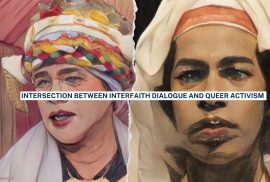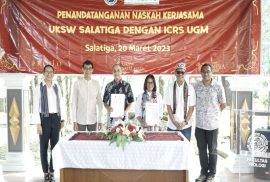Written by Athanasia Safitri
As much as it is sensitive to discuss queer[1] issues in our society, there is an academic need to address the new social reality and conduct related research. Getting an invite to talk about queer activism in relation to interfaith dialogue on the Wednesday Forum, Amar Alfikar is an Indonesian trans man activist whose work challenges religious-based queerphobia, as well as pushing queer-inclusive narratives in theology. He is the founder and director of IQAMAH (Indonesian Queer Muslim and Allies) and has been working for seven years to advocate queer-of-faith activism in Muslim contexts.










